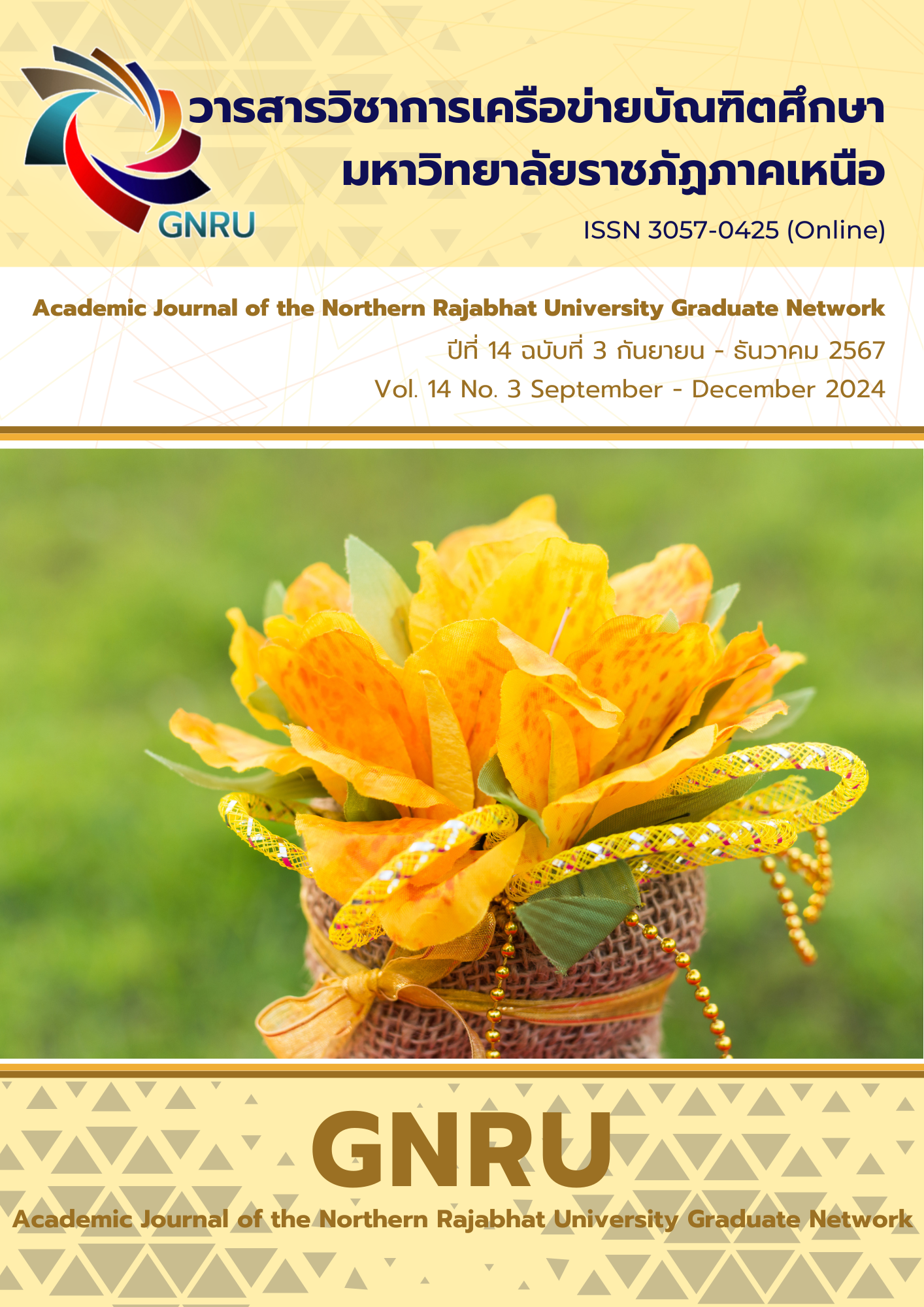6 THE EFFECT OF BRAIN-BASED LEARNING MANGEMENT ON LEARNING ACHIEVEMENT AND SATISFACTION IN HEALTH AND PHYSICAL EDUCATION SUBJECT OF GRADE 3 STUDENTS
Main Article Content
Abstract
The purposes of this research were to compare the learning achievement of Grade 3 students before and after learning management based on Brain-Based learning as well as the learning achievement of Grade 3 students after learning management based on Brain-Based learning with the criteria of 70 percent of full score, and study the satisfaction of the students toward learning in the Health and Physical Education subject. The sample was 24 Grade 3 students of the Watvoranadbanphot School, selected by Multi-stage sampling. The research instruments were: the lesson plans according to Brain-Based learning management, the Health and Physical Education subject achievement test, and a satisfaction evaluation form on the Health and Physical Education subject. The data were analyzed using the mean, standard deviation, t-test for dependent samples and t-test for one sample. The research results revealed that the students’ a mean score before the learning management was 13.25, a standard deviation equal to 1.87 and a mean score after learning was 27.33, with a standard deviation equal to 2.04, showing that the learning achievement after learning was higher than before with a statistically significant level at.05. Also, their mean score after learning was 27.33, showing that the learning achievement after learning was higher before with the criteria of 70 percent criterion at the level of .05 significance. In addition, the students’ satisfaction with the learning management was at the highest level.
Article Details
References
Buranrom, R., & Kanchanasorn, W. (2023). The Effects of the Brain–Based Learning on Learning
Achievement and Analytical Thinking in Topic Organ Systems and Body Growth of Grade4 Students at Ban Nong Yang School. Curriculum and Instruction students (Special subject group Health and Physical Education) Faculty of Education Khon Kaen University.
Caine, R.N., & Caine, G. (1990). Understanding a Brain Based Approach to Learning and Teaching.
Educational Leadership, 48(2), 66-70.
Chuthai, N. (2016). Individual differences. Available on http://nuttapong.wikispaces.com/.
Dechkamchon, N. (2023). Learning management of flute playing based on brain-based learning
(BBL) with QR code for Mathayom 2 students. [Master of Education],Uttaradit Rajabhat University.
Deenoi, A. (2022). The Effect of Brain - Based Learning Management on Learning Achievement
and Satisfaction toward Learningon Mathematics Subject of Prathomsuksa 2 Students. [Master of Education]. Nakhon Sawan Rajabhat University.
Inpitak, K. (2019). The Development of Reading and Writing in Thai Words of Pratomsuksa 2
Students through Brain-Based Learning Activities. [Master of Education],Mahasarakham University.
Lertwicha, P.J., & Jaruphakorn, A. (2007). brain learns. (2nd printing). Bangkok: Institute for the
Promotion of Genius and Innovation in Learning.
Lertwicha, P. (2012). How does the brain learn?. Bangkok: Saladaeng.
Mongkhoncharoenphan, S. (2019). Brain based learning Dusit Commercial College. Nonthaburi:
Sukhothai Thammathirat Open University.
Nawikarn, S. (2007). Management and organizational behavior. Bangkok: Business activities.
Ngamsom, R. (2017). A study of learning Management using brain-based learning Todevelop
English speaking skill for prathomsuksa three Students. Department of Curriculum and
Instruction Graduate School, Silpakorn University.
Pornkul, C. (2011). Teaching the theoretical thinking process and its application. (2nd printing).
Bangkok: Chulalongkorn University Press.
Prasit, A. (2017). Development of a brain-based physical education learning management model to
develop academic achievement of lower secondary school students. [Doctoral of Education].
Srinakharinwirot University.
Sasithorn, W. (2013). Learning Management. Bangkok: Publisher Odeon Store.


